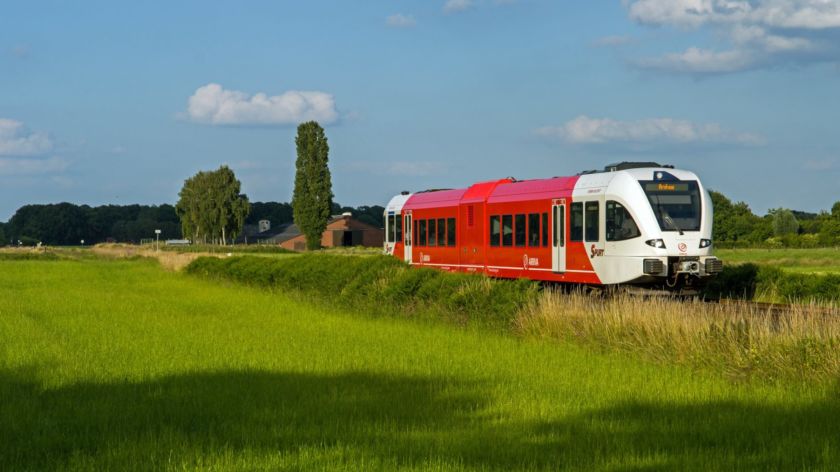Working through a train strike: ‘it’s our own fault that the work never lets up’
-
 Een Arriva-trein in het Achterhoekse landschap. Foto: Rob Dammers (via Flickr)
Een Arriva-trein in het Achterhoekse landschap. Foto: Rob Dammers (via Flickr)
OPINION – Today’s train strike demonstrates that university staff are themselves also responsible for taking on more and more work, according to Marc van Oostendorp, professor in Dutch and Academic Communication. ‘Everybody talks about reducing the workload, but nobody does anything about it.
Three years ago, a train strike would have led to a message like this: ‘Sorry people, I know many of you can’t make it; I am also having trouble myself. Let’s just take the afternoon off and start classes next week. We can make it up later.’
We shouldn’t idealise the past, though. That afternoon off didn’t really exist three years ago, not for students and not for lecturers. There was always something that needed to be made up, but a strike did provide a chance to catch up on other work and have a leisurely start to the weekend – particularly because it meant next week’s lectures were already prepped, and that there probably would be several more strikes next week. It meant a slow start to the new academic year.
But none of that is applicable nowadays, as best I can tell. I haven’t come across a single person who’s even considered cancelling a lecture.
Changing Gears
But now everybody assumes that these issues can be solved by moving education to Zoom or Teams. Now that we know how to make the academic show go on, it has become perfectly normal to do so. Even in the first week of classes, when it’s very important to meet face to face. It allows students to bond as a group and gives lectures the chance to be able to put faces to the names.
‘We know how to make the academic show go on’
This week, research showed that students perform better on all fronts if they feel seen and heard by the lecturer. But those considerations were not a deciding factor.
And if we’re being honest, it’s not that much effort. In fact, we were supposed to give lectures anyway, so why complain if you can do that from home? But of course, it is still a little effort, especially given that there were always some days where something unexpected happened. Those days gave some much-needed respite, not just in the lecturers’ schedules, but the students’ as well. Those provided some unplanned free space, but that kind of free space does become part of a pattern if it keeps happening, no matter how erratic.
And so, we keep on trucking. This is not something imposed on us by the government, or visitation committees, or really anyone besides our own sense of duty. And I am no exception: I’ve let colleagues know that, because of online possibilities, I can attend a joint lecture in one city, that I would normally have to skip because I would have to perform in a different city half an hour later. Now that we have Zoom I can more easily switch gears – so I do.
This opinion piece was published on the Dutch studies’ website earlier.
Translated by Jasper Pesch.




